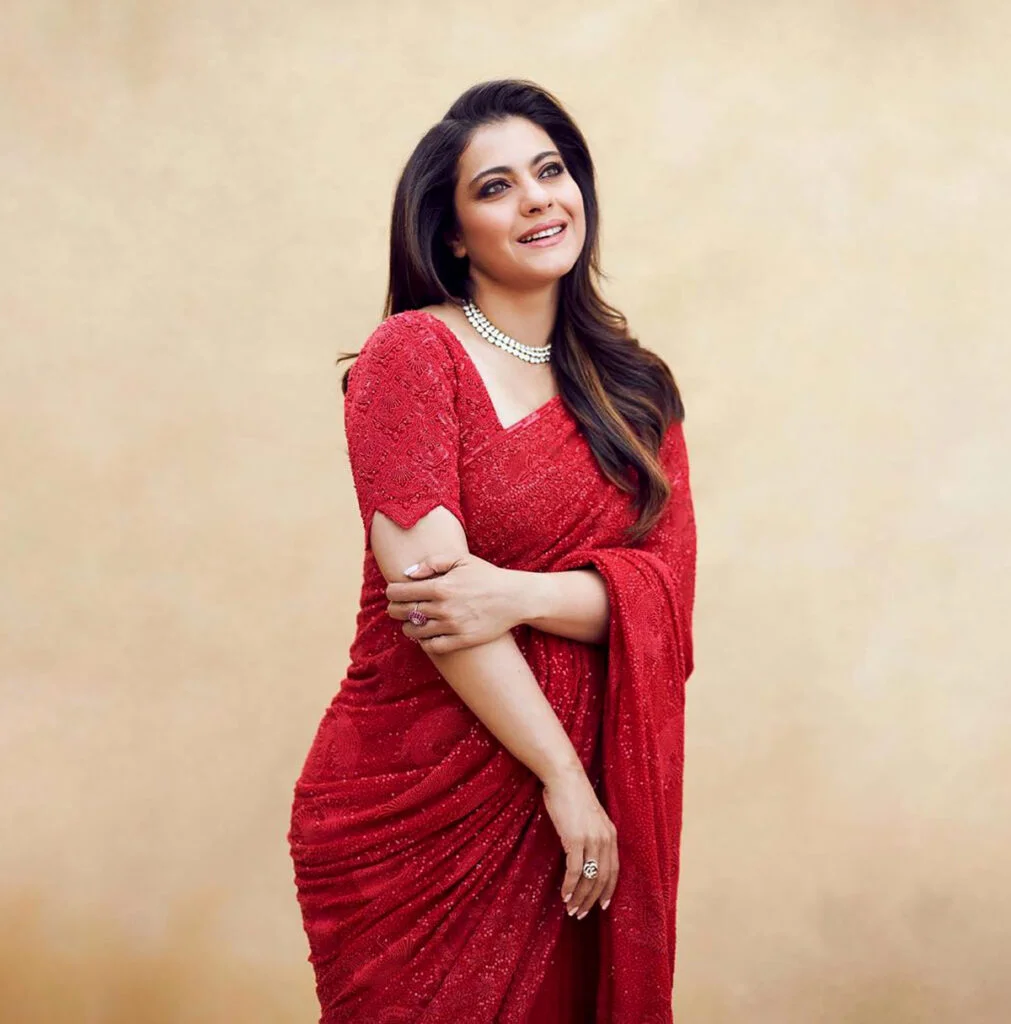The Balance of Work and Life: Kajol’s Perspective on Acting and Success

Table of Contents
Introduction to Kajol’s Work Ethic
Kajol, a prominent figure in the Indian film industry, has earned acclaim for her exceptional performances as well as her distinctive work ethic. Uncommonly, this illustrious actress refers to herself as the ‘least worked actor.’ This self-identification is not an admission of laziness or diminished ambition; rather, it reflects her philosophical approach to her career and life. Kajol believes that work is part of life, not the entirety of it. This perspective is truly informative, especially in an industry that often emphasizes relentless hustle and constant engagement.
In an environment dominated by the relentless pursuit of success and visibility, Kajol’s approach diverges significantly from her peers. She intentionally chooses to take on fewer projects, thus ensuring that the roles she selects resonate with her personal values and artistic intentions. This has allowed her to maintain the quality of her work while also nurturing her personal life, aligning with her belief that fulfillment extends beyond professional achievements. By choosing quality over quantity, Kajol sets herself apart from the conventional hustle culture that is often glorified in the entertainment field.
Moreover, this philosophy places importance on personal well-being and mental health, encouraging a healthier approach to working in an industry that can be demanding and stressful. Kajol’s logic reflects a broader understanding that one’s career should contribute to overall life satisfaction rather than be the sole source of identity or happiness. Her candid reflections challenge the status quo and inspire a dialogue about the importance of balance in the pursuit of success. Through her insights, we gain a deeper understanding of the potential for creating a fulfilling career without sacrificing personal life, demonstrating that there is merit in redefining success beyond conventional metrics.
Kajol’s Perspective on Work
Kajol, a celebrated figure in Indian cinema, has made a distinct mark with her remarkable performances. Despite her prominent status, she proudly identifies herself as the ‘least worked actor’ among her contemporaries. This assertion, while seemingly contradictory, reveals much about her approach to both her career and life. Unlike many of her peers who often prioritize a packed schedule, Kajol has chosen to be selective with her roles, allowing her the advantage of maintaining a balanced life.
This self-proclaimed title is not merely a reflection of her on-screen appearances but rather a conscious decision informed by her values. Kajol emphasizes that “work is part of life, not whole life.” This philosophy underscores her belief that personal fulfillment and familial bonds should never be compromised for the sake of sustained on-screen presence. By embracing fewer projects, she ensures that her screen time is reserved for roles that resonate deeply with her, thereby enriching her performance rather than diluting her essence.
Moreover, Kajol’s limited presence in the industry does not imply a lack of ambition or talent. Instead, it showcases an understanding of one’s capabilities and the importance of alignment between personal and professional spheres. Her deliberate approach allows her to invest the necessary energy and passion in each character she embodies, effectively contributing to the cinematic narrative of her time. This level of commitment, paired with her strong personal convictions, makes her one of the most respected figures in the industry, regardless of her fewer appearances.
Kajol’s journey serves as an inspiration, encouraging others to seek a work-life balance that honors personal values while still pursuing professional excellence. Her choices highlight that success does not solely hinge on quantity but rather on the quality of one’s contributions to both life and art.
The Philosophy of Work-Life Balance
In the contemporary world, the concept of work-life balance has garnered widespread attention, often triggering discussions on societal expectations versus personal satisfaction. At the forefront of this discourse is Kajol, an actress known for not just her talent but also her unique perspective on life and work. She embodies the notion that work is a vital part of life but not the entirety of it. This philosophy resonates deeply with many, particularly in an era where the pressure to achieve professional success can overshadow other aspects of life.
Kajol’s viewpoint challenges the traditional idea of success, which often emphasizes career accolades and continuous work engagement. Instead, she promotes a more holistic understanding of fulfillment, wherein personal relationships, self-care, and emotional well-being play crucial roles. By illustrating that one’s worth should not solely be dictated by their career accomplishments, she urges individuals to reflect and redefine success on their own terms. This is particularly poignant for those who find themselves overwhelmed by the demands of modern life, resembling what some may refer to as the ‘least worked actor’ paradox—suggesting success is not always measured by the quantity of work but rather by the quality of life experienced.
Moreover, Kajol’s perspective encourages reconciling the often conflicting societal norms that dictate how success should look. She acknowledges that while ambition is imperative, it should not come at the expense of crucial life experiences. This balance enables individuals to nurture relationships and pursue personal passions, reinforcing the idea that life is multifaceted. Ultimately, by understanding that work is but one component of a successful existence, individuals can strive for a more enriching life journey, one where joy, fulfillment, and well-being take precedence over mere professional accolades.
Mom’s Wisdom: Work is Part of Life, Not Whole Life
Kajol Devgan, a celebrated actress in Indian cinema, has often credited her upbringing and the teachings of her mother, Tanuja, for shaping her perspective on life and work. Growing up in a family deeply rooted in the film industry, Kajol faced the challenge of balancing her professional ambitions with her personal life. Her mother, an accomplished actress herself, provided profound insights on the importance of prioritizing one’s well-being over career success. Tanuja instilled in her the belief that while work is vital, it should not dominate one’s existence. This philosophy is summed up in the lessons she imparted: “Work is part of life, not the whole of it.”
Kajol’s mother emphasized that achieving a healthy work-life balance is paramount. She encouraged her daughter to pursue her passion for acting but always reminded her to nurture relationships, personal interests, and values outside the realm of cinema. This foundational wisdom influenced Kajol’s decisions as she navigated her career, choosing roles that resonated with her principles rather than succumbing to industry pressures for constant productivity.
The actress has often remarked on how her mother’s guidance allowed her to enjoy her career while still cherishing family time and personal growth. Kajol believes that prioritizing meaningful connections and experiences results in a richer, more fulfilling life. This approach also resonates with her view on the industry, acknowledging that while acting is a significant aspect of her identity, it does not encompass the entirety of who she is.
Through Tanuja’s teachings, Kajol embodies the belief that work is merely a facet of life, advocating for a holistic approach to success that embraces both professional achievements and personal happiness. Maintaining this balance enables Kajol to have a more serene and enriched perspective in both her career as an actress and her role as a mother, aligning perfectly with her philosophy of life.
Challenging the Norm: What It Means to be a ‘Successful’ Actor
In the realm of acting, the conventional definition of success often hinges on fame, box office sales, and award accolades. However, Kajol, a celebrated figure in Indian cinema, offers a refreshing perspective that challenges these traditional benchmarks. Rather than adhering to the typical trajectory that many actors follow—where the accumulation of projects and public adoration equates to success—Kajol emphasizes a more nuanced understanding of achievement. For her, acting is not merely a career; it represents a facet of life, suggesting that work is part of life but not the entirety of it.
This perspective advocates for a holistic approach, suggesting that emotional fulfillment and authenticity are equally important metrics of success. Kajol often speaks about the importance of personal priorities and choices in her professional journey, rejecting the notion that a ‘successful’ actor must relentlessly pursue every opportunity. Instead, she believes in making deliberate choices that align with her values and family commitments, which leads to a richer experience both personally and professionally.
Moreover, Kajol’s narrative contrasts sharply with the definition of the ‘least worked actor’ as someone who may appear not to be active in the industry. However, she showcases that this terminology does not reflect diminished success but rather a conscious decision to curate one’s engagements. By emphasizing quality over quantity and focusing on meaningful roles that resonate personally, Kajol redefines success in acting. She advocates that being true to oneself and prioritizing life beyond work can lead to a fulfilling career, making the industry both a platform for expression and a component of a balanced life. Ultimately, her journey serves as a reminder that each actor’s path can be uniquely defined, challenging us to reconsider what it truly means to be successful in the competitive world of acting.
The Impact of Less Work on Creative Expression
In the fast-paced film industry, many actors often feel pressured to take on multiple roles in a constant search for success. However, for some, including Kajol, the choice to work selectively has proven to be not only beneficial but also transformative for their creative expression. By limiting the number of projects undertaken, actors like Kajol can dedicate more time to each role, diving deeply into character development and nuances that might otherwise be overlooked in a busier schedule.
The ability to focus on fewer roles allows for a meticulous and thorough exploration of each character’s complexities. With lessened pressure to consistently be in the public eye, actors are afforded the time to reflect on their performances and gather new experiences that can enrich their portrayals. This conscious decision to embrace a less hectic work life exemplifies the philosophy that work is part of life, not the whole of it. As a result, Kajol has demonstrated that selecting projects based on personal interest and artistic merit, rather than the quantity of work, can yield profound artistic rewards.
Moreover, reducing the workload directly addresses the challenges of burnout that many creative professionals face. The entertainment industry often demands high energy and constant visibility, which can lead to exhaustion. By intentionally choosing a limited number of projects, Kajol exemplifies a balanced approach to her career, contributing to sustained passion and innovation in her craft. It showcases how a thoughtful approach to acting can stimulate artistic growth and allow for more meaningful contributions to cinema, reinforcing the notion that being a successful artist does not solely hinge on being the least worked actor or having an extensive filmography.
Reactions from Fans and Industry Peers
Kajol Devgan, a prominent figure in Indian cinema, has become synonymous with the notion that work is part of life, not the whole life. Her stance on achieving a balance between her professional commitments and personal well-being has resonated deeply with both fans and industry peers alike. In an age where the entertainment industry often emphasizes the relentless pursuit of success, Kajol’s perspective has been a refreshing counter-narrative.
Fans have lauded Kajol as one of the least worked actors of her generation, often pointing out her ability to prioritize personal happiness and family life. Many appreciate that she does not conform to the traditional expectations of constant screen presence, instead focusing on roles that genuinely interest her. This approach has garnered admiration from her followers, who see her as an empowering figure advocating for mental health and a fulfilling life beyond the glamour of the film industry.
Critics and fellow actors have also weighed in on her philosophy, remarking that her choice to step back from projects demonstrates a level of confidence rare in the industry. For instance, industry peers often commend Kajol for her selective approach to work, viewing it as a powerful statement in a field characterized by an unyielding pace. This perspective encourages many in the industry to appreciate the importance of mental wellness and personal fulfillment, thereby reshaping the narrative around success.
Professional relationships in Bollywood often reflect the competitiveness of the field, but Kajol’s views serve as a unifying force, sparking dialogues around the need for balance. As an influential leader, she emphasizes that the depth of one’s work must align with personal values, thereby elevating the conversation beyond mere accolades and box office numbers. It is evident that Kajol’s perspective resonates across a diverse audience, further solidifying her impact in both cinematic and societal contexts.
Implementing Work-Life Balance in Our Lives
Achieving a healthy work-life balance often seems more challenging than it is, especially in fast-paced environments where the expectations of work can overshadow personal well-being. Kajol’s perspective on the acting profession underscores the importance of recognizing that work is merely a part of life, not the entirety of it. To implement this balanced approach in our own lives, we must begin by prioritizing personal well-being as a fundamental component of overall success.
Setting clear boundaries between professional and personal life is essential. This might mean designating specific hours for work tasks while reserving time for family, relaxation, or personal interests. When these boundaries are established, it becomes easier to detach from work responsibilities and engage fully in personal activities without the constant distraction of work-related thoughts. Creating a space where we can unwind and recharge is instrumental in finding joy and fulfillment outside of our careers.
Additionally, actively pursuing interests outside the professional realm can significantly enhance one’s happiness and satisfaction. Engaging in hobbies, spending time with loved ones, or even exploring new activities can help redefine the relationship we have with work. Kajol’s success as an actor is not only due to her talent but also her understanding that life encompasses more than professional achievements. By infusing our lives with diverse experiences and connections, we can cultivate a sense of fulfillment that complements our careers.
In essence, finding a balance that resonates with individual needs can lead to greater productivity and happiness. By embracing the idea that work is merely a piece of life’s puzzle, we can inspire ourselves and others to pursue a more harmonious existence. Thus, adopting Kajol’s wisdom about life and work offers a meaningful approach to achieving this vital balance.
Conclusion: Embracing a Balanced Life
In our exploration of Kajol’s views on work and life, we find important insights that resonate with many individuals navigating their own paths. Kajol, an accomplished actress known for her memorable performances, embodies the notion that while work is vital, it should not overshadow personal well-being and fulfillment. This perspective is particularly relevant in an era where the pursuit of career success often leads to neglect of personal happiness. As the least worked actor may suggest, sometimes taking a step back from constant engagement in our professions can open doors to greater clarity and satisfaction.
Kajol emphasizes that work is just one aspect of life. The pursuit of success in one’s career should be balanced with personal passions and connections. She advocates for the understanding that life should be lived fully, wherein work serves as a part of one’s identity rather than its entirety. This philosophy encourages individuals to reflect on their own life choices, fostering a mindset that seeks satisfaction in both their personal and professional spheres. By treating work as a component of a larger life narrative, rather than the central theme, one can achieve a more meaningful existence.
Ultimately, Kajol’s insights inspire an examination of our own priorities. For readers, this may prompt a discussion on finding equilibrium amidst competing demands. It invites us to ask: are we overly focused on career achievements at the expense of maintaining healthy relationships and personal joy? In conclusion, embracing a balanced life aligns with Kajol’s message that while ambitions are important, nurturing one’s holistic self can lead to a richer, more rewarding experience overall.




Post Comment